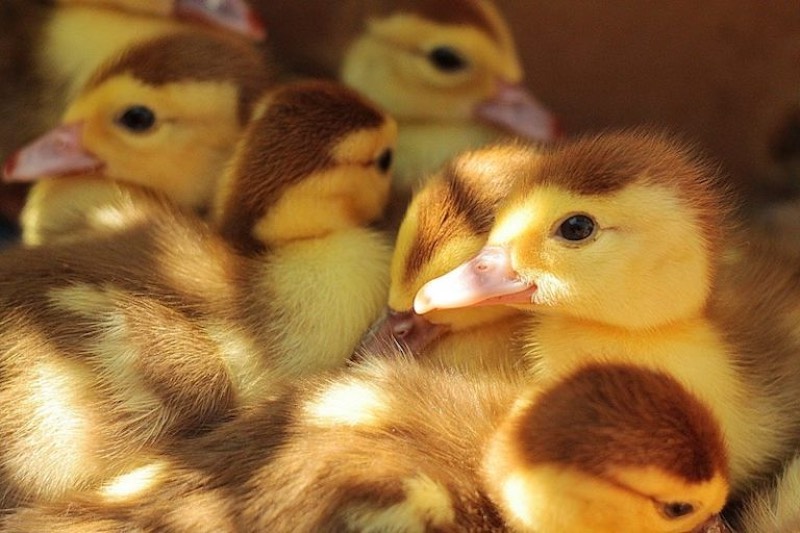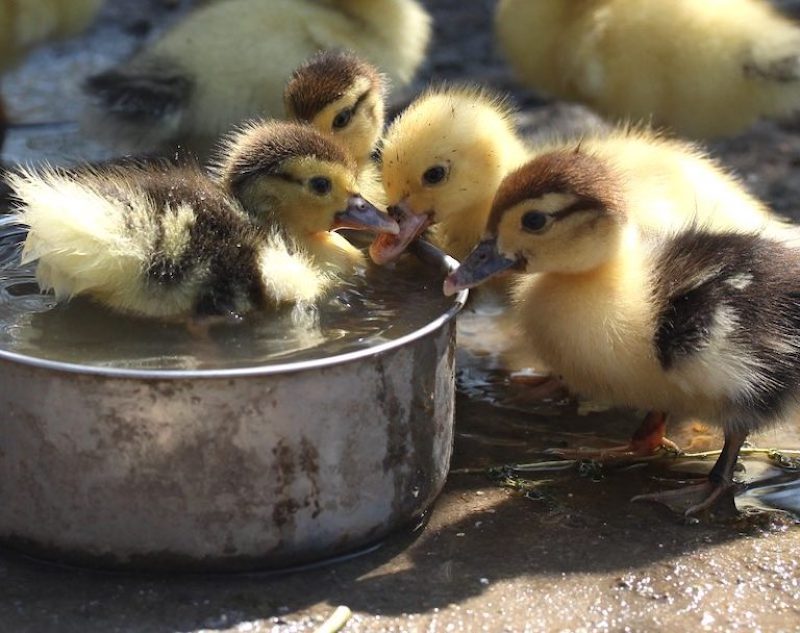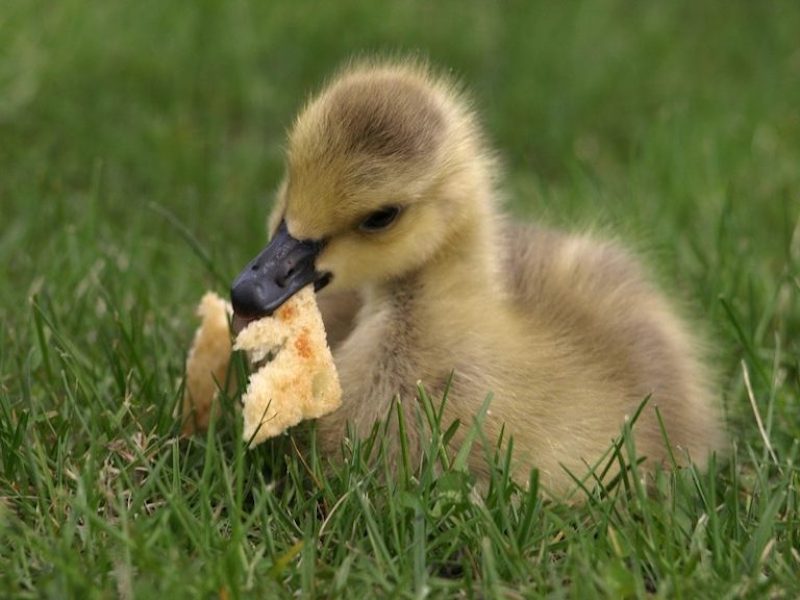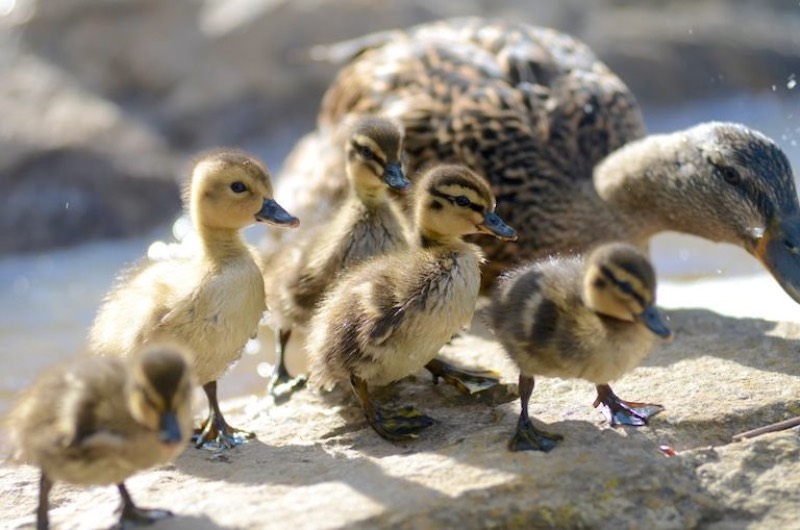Planning on raising ducklings in your homestead? Don’t treat them like regular chickens! If you want to grow big, fat healthy ducks for meat and eggs, you have to cater to their specific needs.
RELATED: Raising Ducks For Your Homestead
What Every Homesteader Needs to Know About Raising Ducklings
Preparing the Site

The first thing you need to do is to source all the necessary items and materials for raising ducks properly. These include:
- Brooder
The brooder is basically a clean, dry, and warm area where your ducklings will live. If you have at least basic woodworking skills, you can try making one yourself by using some extra pallets and wooden planks.
However, if you're not confident you can build one, opt to upcycle old items such as bathtubs, dog crates, large cabinet drawers, or even plastic-lined cardboard boxes.
- Shallow Bowls for Food and Water
Source two clean bowls for your ducks to eat and drink from. Make sure you only use small, shallow options. Otherwise, the ducklings might get hurt or drown if they fall into their feeding/drinking bowls.
Some homesteaders would argue that a nipple waterer is much safer to use than a bowl since there’s no risk of the ducklings drowning. However, these aren’t really suitable for raising ducks.
Unlike chickens, ducks absolutely need at least a shallow bowl of water to drink from and dunk their head in. Doing so is the only way they can clear their nostrils of debris and impurities.
- Thermometer and Heat Lamp
Ducklings need a clean, warm environment. Exposing them to necessarily high amounts of moisture, water, and humidity will increase the risk of them catching diseases or infections.
To prevent that, you need a thermometer and a heat lamp. Turn the heat lamp on 24/7, or at least for the longer part of the day, and regularly monitor the thermometer to ensure the indoor air temperature stays at the ideal level.
Note: These are especially important for those who live in cold states with extreme winters and rainy seasons.
- Brewer's Yeast
Ducks have relatively large bodies that are often not proportional to their legs. The only way to ensure their small legs are able to support their big frame is to boost their diets with niacin. So sprinkle a bit of brewer's yeast in their feed regularly.
- Grit
Commercial chick grit is fine to feed to your ducklings. However, it's best to customize their food by adding in some extra ingredients.
Not only does this boost their feed's nutritional value exponentially, but doing so also adds a bit of flavor. This makes it easier to get your picky eater ducks to eat.
Some great feed additions include:
- freshly cut weeds and grass
- lettuce
- dehydrated mealworms
- crickets
- slugs
- earthworms
RELATED: 5 Best Quail Breeds To Raise At Your Homestead
How Much Water Do Ducks Need?

Anyone who has ever taken a shot at raising ducks knows just how much these birds love water. They love bathing in it, they love playing in it, and they absolutely love drinking it!
In fact, fully grown ducks can consume around two liters of water daily. That’s half the daily amount of fluids needed to keep an adult male hydrated for 24 hours.
What Treats Can You Give Ducklings?

Ducklings are incredibly cute and very fun to watch while they eat! The sight of these little birds nibbling on small snacks is just irresistible.
Some good snacks to throw in your ducklings’ food and water bowls include:
- lettuce
- Swiss chard
- kale
- mealworms
- earthworms
If you’re raising ducklings for meat, you might want to refrain from giving them treats and spoiling them. Otherwise, you might get too emotionally attached to them. Some homesteaders have trouble butchering their livestock because they treat them as pets.
Those who are raising ducks for eggs, on the other hand, can consider treating their livestock as pets. After all, they’ll only be dying of old age.
Can You Let Them Out of the Brooder?

Once the ducklings are a few weeks old already, you can let them out of the brooder or cage every once in a while.
Giving them exposure is important for their overall development. They can run around and exercise their legs, try catching a few bugs on their own, or swim around a nearby shallow pond.
Note: Put up a fence around your home if you plan to let your ducklings roam free. This prevents predators from swooping in and eating your livestock. At the same time, it blocks any possible holes for your ducks to escape from.
Raising Ducklings and Chicks Together: Is It a Good Idea?
Yes, technically, you can raise chicks and ducklings together. However, doing so isn’t the best idea. We highly recommend brooding and raising them in separate areas where they cannot interact with each other without your supervision.
Firstly, ducklings love water and they’ll make a mess of everything. Expect your ducklings to splash their bowl of water all around the brooding pen.
If there are chicks in there, they’d get constantly wet. Remember: wet chicks are at high risk of dying because of diseases and infections.
Secondly, ducks grow at a stunningly fast rate. While your chicks are still the size of your palm at two to three weeks, your ducklings would’ve grown at least thrice as large by then already.
So if you put them in the same pen, there’s a good chance that the grown ducklings will trample all over the tiny chicks.
Check out this video by Homesteady to learn the secret to brooding and raising ducklings in your farm without making a mess:
Contrary to popular belief, raising ducklings isn’t as complicated as most make it out to be. In fact, there are homesteaders who find that they’re easier to take care of. Compared to chicks, ducklings are quicker to grow and are less likely to get sick or die from infections.
Plus, duck meat is very nutritious! It’s a rich, dense alternative to chicken meat that provides an array of vitamins and nutrients. They might be a bit more expensive, but trust us when we say they're worth every penny.
What made you decide to start raising ducklings? Share your thoughts with us in the comments section below!
UP NEXT:
- Farm-Raised Turkey For Thanksgiving | The Secrets To Raising Poultry
- Chicken Breeds [Chapter 1] Raising Backyard Chickens
- A Homesteader’s Guide To Canning Blueberries Without Added Sugar
Fellow homesteaders, do you want to help others learn from your journey by becoming one of our original contributors? Write for us!

Leave a Reply